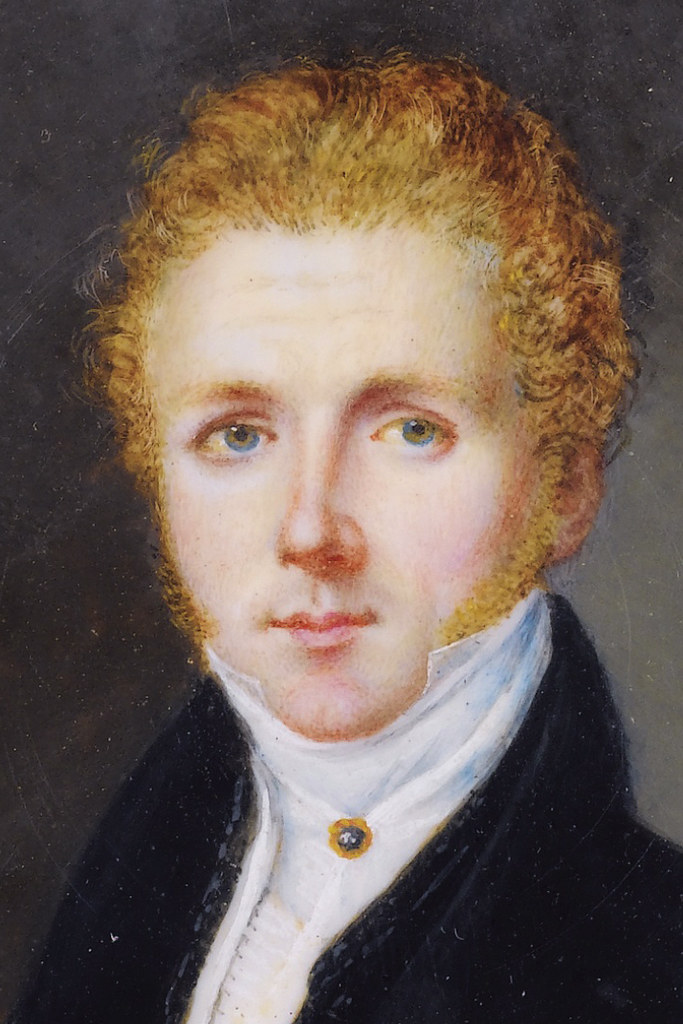PLOT
Romeo and Juliet. The story of this opera is taken from the source of Matteo Bandello instead of the Shakespearean text.
Capello, the chief of the Capuleti, refuses to agree to a pact through which his daughter Giulietta would marry Romeo of the Montecchi clan, and orders that her marriage to Tebaldo should go ahead immediately. Romeo fails to persuade Giulietta to elope, and so he and his supporters enter the city and disrupt the marriage celebrations.
Giulietta is informed by Lorenzo, the family doctor, that the only way to secure her freedom from Tebaldo is to take a sleeping draught that will give the impression that she is dead. She will be revived in the family vault, where he and Romeo will be waiting. The plan backfires when Lorenzo is arrested. Romeo believes Giulietta to be dead and takes poison. But as he lies dying, Giulietta wakes up. Hoping to avert the tragedy, Lorenzo rushes in, but he is too late: Romeo and Giulietta are lying dead in each other's arms.
ACT BY ACT
”The Capulets and the Montagues”
Opera in 2 acts
Sung in Italian
About 2 hours 20 min + interval
Around the palace of Capellio (Capulet) in Verona, 13th century
Act 1
Scene 1
The Palace
Capellio and Tebaldo address their followers advising rejection of an offer of peace to be brought by an envoy from Romeo, the man who had killed Capellio's son. Tebaldo states that he will avenge the killing to celebrate his marriage to Giulietta: (Cavatina: È serbata a questo acciaro / "And reserved for this sword / is the vengeance of your blood") and he urges Capellio to hasten the moment when he may marry Giulietta and then avenge Capellio. The doctor, Lorenzo, objects that Giulietta is ill with a fever, but Capellio brushes his warning aside and declares the wedding will take place immediately. Tebaldo proclaims his love for Giulietta: Sì: M'Abbraccia / "I love her so much / She is so dear to me". Capellio's men urge him on and arrangements are made to have the wedding take place that day.
While the men proclaim their hatred of the Montecchi, Romeo enters in the guise of a Montecchi envoy, offering peace to be guaranteed by the marriage of Romeo and Giulietta. He explains that Romeo regrets the death of Capellio's son (Cavatina: Ascolta: Se Romeo t'uccise un figlio / "Listen: If Romeo killed your son / he brought him death in battle / And you must blame fate"), and offers to take his place as a second son for the old man. Capellio indicates that Tebaldo has already taken on that role and—together with all his men—rejects all idea of peace: "War! War", the men proclaim. Romeo accepts their challenge of war: (Cabaletta: La tremenda ultrice spada/ "Romeo will prepare to brandish the dread avenging sword / Romeo accepts your challenge of war.)
Scene 2
Giulietta's room
Giulietta enters proclaiming her frustration against all the wedding preparations which she sees about her. Recitative: "I burn, a fire consumes me wholly. In vain do I seek solace from the winds... Where are you Romeo?". Cavatina: Oh! quante volte / "Oh how many times do I weep and beg heaven for you".
Lorenzo enters, explaining that he has arranged for Romeo to come to her by a secret door. When Romeo enters, he tries to persuade Giulietta to escape with him. Duetto: Romeo: Sì, fuggire: a noi non resta / "Yes, flee, for us there is no other escape"; he demands: "What power is greater for you than love?", but she resists in the name of duty, law, and honour, declaring that she would prefer to die of a broken heart. Romeo is distraught: Cantabile: Romeo: Ah crudel, d'onor ragioni / "Oh cruel one, you speak of honour when you were stolen from me?" Giulietta responds "Ah what more you ask of me?", then, in a tempo di mezzo in which each expresses his/her conflicting emotions, the situation becomes more and more impossible for them both.
The sounds of wedding preparations are heard: Giulietta urges Romeo to flee; he declares that he will stay and, in a final cabaletta in which Romeo pleads "Come, ah Come! Rely on me", Giulietta continues to resist. Each leaves.
Scene 3
Another part of the palace
The Capuleti are celebrating the forthcoming marriage. All those assembled join in. Romeo enters in disguise and tells Lorenzo, who immediately recognises him, that he is awaiting the support of his soldiers, one thousand of whom are assembled dressed as Ghibelines and who are intent on preventing the wedding. Lorenzo remonstrates with him, but suddenly, the armed attack by the Montecchi takes place as they surge into the palace, Romeo with them. Giulietta is alone, lamenting the state of affairs, Tace il fragor / "The tumult has ended". Then she sees Romeo, who has appeared, and again he urges her to run away with him: "I ask this in the name of promised love", he declares. Capellio, Tebaldo and the Ghibelines discover them, and believe that Romeo is still the Montecchi envoy. As Giulietta tries to shield him from her father, Romeo proudly tells them his true name. The Montecchi enter to protect him and, in a concerted finale involving all from both factions, the lovers are separated by their family members, finally proclaiming: Al furor che si ridesta / "If all hope of ever seeing each other again in life / this will not be the last farewell". Capellio, Tebaldo, and Lorenzo become part of the quintet finale, as the ranks of the supporters of both sides join in the swell.
Act 2
Scene 1
Another part of the Palace
Introduced by a solo for cello, Giulietta awaits news of the fighting. Lorenzo enters and immediately tells her that Romeo lives, but she will soon be taken away to Tebaldo's castle. He offers a solution: that she must take a sleeping potion which will make it appear that she has died. She will then be taken to her family's tomb where he will arrange for Romeo and himself to be present when she awakes. In a state of indecision, she contemplates her options. (Aria: Morte io non temo, il sai / "You know that I do not fear death, / I have always asked death of you...") and she expresses doubts while Lorenzo urges her to take the potion, given that her father is about to come into the room. Taking the bottle, she declares that "only death can wrest me from my cruel father".
With his followers, Capellio comes to order her to leave with Tebaldo at dawn. Her ladies beg her father to be kinder towards her. Proclaiming that she is close to death, she begs her father's forgiveness: Cabaletta: Ah! non poss'io partire / "Ah, I cannot leave without your forgiveness.....Let your anger turn just once to peace", but Capellio rejects her and orders her to her room. He then instructs his men to keep watch on Lorenzo of whom he is suspicious; they are ordered not to allow Lorenzo to have contact with anyone.
Scene 2
The grounds of the palace
An orchestral introduction precedes Romeo's entrance and introduces what Weinstock describes as "his bitter recitative", Deserto è il loco / "This place is abandoned", in which he laments Lorenzo's apparent forgetfulness in failing to meet him as planned. He then hears the noise of someone entering. It is Tebaldo, and the two men begin an angry duet (Tebaldo: Stolto! a un sol mio grido / "With one cry a thousand men will arrive". Romeo: "I scorn you. You will wish the alps and the sea stood between us"). As they are about to begin fighting, the sound of a funeral procession is heard (Pace alla tua bell'anima). They stop and listen, only then realising that it is a procession for Giulietta. In a cabaletta finale, the rivals are united in remorse, asking each other for death as they continue to fight.
Scene 3
The tombs of the Capuleti
Along with his Montecchi followers, Romeo enters the tomb of the Capuleti. The followers mourn Giulietta's death. At her tomb and in order to bid her farewell, Romeo asks for it to be opened. He also asks that the Montecchi leave him alone with Giulietta: Romanza: Deh! tu, bell'anima / "Alas! You, fair soul / Rising up to heaven / turn to me, bear me with you". Realising his only course of action will be death, he swallows poison and, lying down beside her, he hears a sigh, then the sound of her voice. Giulietta wakes up to find that Romeo knew nothing of her simulated death and had been unaware of Lorenzo's plan. Urging him to leave with her, Giulietta gets up but Romeo states that he must remain there forever, explaining that he has already acted to end his life. In a final cabaletta, the couple clings to each other. Then he dies and Giulietta, unable to live on without him, falls dead onto his body. The Capuleti and Montecchi rush in to discover the dead lovers, with Capellio demanding who is responsible: "You, ruthless man", they all proclaim.
ROLES
Tebaldo – Tenor (lyric)
Betrothed to Giulietta
Capellio – Bass
Leader of the Capuleti, father of Giulietta
Lorenzo – Bass
Doctor and retainer of the Capuleti
Romeo – Mezzo-soprano (lyric)
Leader of the Montecchi
Giulietta – Soprano (lyric coloratura)
In love with Romeo
COMPOSER
Vincenzo Bellini
1801-1835
Place of birth: Catania, Sicily
Place of death: Puteaux, France

BIOGRAPHY
Vincenzo Salvatore Carmelo Francesco Bellini was an Italian opera composer of the bel canto era. Characteristic for his writing are the use of long, melodic lines. He composed 11 operas of which a handful are regularly performed today.
Bellini only lived until the age of 33. He was a notorious womaniser. During his lifetime he had two significant affairs but never married. He fell in love with Maddalena Fumaroli but her parents rejected his offer to marry her. After Bellini's success with the opera Il pirata, the Fumaroli family withdraw their rejection. By then Bellini had lost interest. He also had a five-year long relationship with the young married woman Giuditta Turina.
In 1829 Rossini attended a performance of Bellini's Il pirata and the composers got the chance to meet. They developed a life-long relationship. When Bellini died of peritonitis in 1835 Rossini arranged for his funeral.
COMPOSER'S QUOTE
"If I were shipwrecked, I would leave all of my other operas and try to save Norma."
FUN FACTS
Bellini's operas never left the repertoire completely but they became more popular in the 1950s and 60s thanks to opera stars such as Maria Callas and Joan Sutherland.
Most prominent operas
I Capuleti e i Montecchi 1830
La sonnambula 1831
Norma 1831
I puritani 1835
LIBRETTO
Felice Romani
1788–1865
The libretto by Felice Romani was a reworking of the story of Romeo and Juliet for an opera by Nicola Vaccai called Giulietta e Romeo and based on the play of the same name by Luigi Scevola written in 1818, thus an Italian source rather than taken directly from William Shakespeare.
Felice Romani was an Italian librettist, poet and scholar of literature and mythology. His list of works is extensive producing nearly 100 librettos during his lifetime including many librettos for Donizetti and Bellini. His most famous works are Bellini’s I capuleti e i Montecchi, La sonnambula, I Puritani and Norma, Rossini’s Il turco in Italia and Donizetti’s Anna Bolena and L’elisir d’amore. He was regarded as the best Italian librettist of his age.
SCORE
DOWNLOAD THE SCORE
INSTRUMENTATION
2, 2, 2, 2 - 4, 2, 3, 0
timp, perc, harp, strings
Chorus
CONTEXT
I Capuleti e i Montecchi premiered at Teatro La Fenice in Venice in 1830.
VIDEOS
FULL LENGTH OPERA - ACT 1
FULL LENGTH OPERA - ACT 2
Act 1
Aria - Se Romeo t'uccise un figlio... La tremenda ultrice spada (Romeo)
Aria – Eccomi in lieta vesta... Oh quante volte (Giulietta)

















